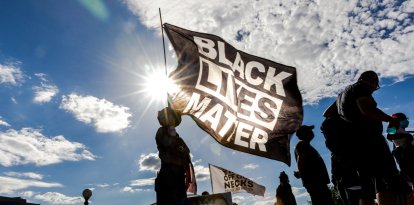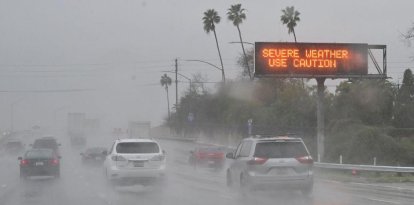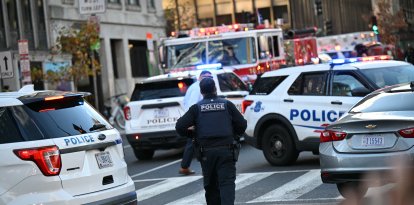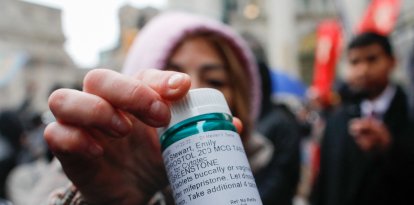Public officials who block critical users on social media risk being sued for violating the First Amendment, Supreme Court says
Justice Amy Coney Barrett issued a 15-page brief explaining in which cases a state employee is at risk of litigation.

Corte Suprema de los EEUU, en Washington, D.C. (AFP)
The Supreme Court, in an effort to adapt laws to new technologies, ruled that public officials can be sued for blocking users on social media apps in specific cases.
A 15-page document written by Justice Amy Coney Barrett, the youngest of the Supreme Court, established which posts of public officials on social media are official and in which cases a state employee risks violating the First Amendment.
Public officials who block critical users on networks risk being sued for vi... by emmanuel.rondon on Scribd
In the unanimous ruling, it was established that officials can be considered "state agents" when they use social media and, therefore, can face litigation if they block or silence a user.
However, Judge Barrett acknowledged that "it can be difficult to tell whether the speech is official or private" because of how social media accounts are used. Therefore, the definition of what an official publication is, to say the least, is limited, and each case has its particularities.
In particular, the Supreme Court held that social media conduct could be considered official when users have the authority to speak on behalf of the government on various topics, post about those topics on their private accounts, and then delete comments from the public, potentially violating the First Amendment.
However, each case must be evaluated individually. Barrett recalled in the ruling that "while public officials can act on behalf of the State, they are also private citizens with their own constitutional rights."
This brief comes as the Supreme Court considers two cases involving a Southern California school board member and a Michigan city manager.
In the first case, San Diego area school board members Michelle O'Connor-Ratcliff and TJ Zane used their personal Facebook and Twitter accounts to discuss official business and campaign politically. However, two of their constituents, Christopher and Kimberly Garnier, left comments criticizing the school board over racial issues and alleged financial irregularities by an administration official. O'Connor-Ratcliff and Zane removed the comments from the Garniers, who were also disqualified from commenting on board members' posts.
In the second case, James Freed, who was hired in 2014 to serve as city manager of Port Huron, Michigan, used his Facebook page to post family and professional information.
In 2020, his Facebook page comments about the pandemic caused a reaction from Kevin Lindke, who the official blocked due to his critical comments.
According to NBC News, the cases raised the question of whether public officials' posts are part of their government duties.
"In ruling that it can, the court found that blocking someone from following an official constitutes a government action that could give rise to a constitutional claim under the Constitution's First Amendment, which protects free speech," NBC News reported.
According to the Supreme Court, both cases must be resubmitted to the lower courts for the new legal test to be applied. Previously, appeals courts reached diametrically opposite conclusions in both cases: In the California lawsuit, an appeals court found that school board members did violate the First Amendment. Meanwhile, the Sixth Circuit, sitting in Cincinnati, dismissed Lindke's lawsuit against Freed.
In 2020, before leaving the White House, former President Donald Trump faced similar legal problems for blocking critical users from following him on Twitter (now X).
With this new legal rule, Judge Barrett suggested that Trump would probably have lost that legal fight.

























